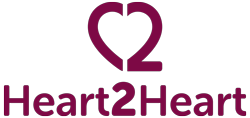A national strategy to address the James Lind Alliance priorities for children and adults with congenital heart disease
CHF is pleased to have taken part in the development of this newly published strategy which addresses the priorities for research on children and adults with congenital heart disease.
Read the full strategy document here.
Top 10 priorities for child/antenatal congenital heart disease research
1. How can damage to organs (e.g. heart, brain, lung, kidney, bowel) during heart surgery in children with CHD be minimised to reduce complications, especially in those who require multiple operations?
2. How can pre- and post-natal screening strategies (e.g. scans, pulse oximetry, novel techniques) be improved to achieve greater accuracy, avoid late diagnosis, and reduce complications from CHD?
3. What are the effects of CHD, low oxygen saturations, and interventions on brain development and behavioural outcomes, and how can these be improved?
4. How can the frequency or need for reoperations be reduced for people with CHD (e.g. improved valve/conduit longevity or that grow with the patient)? *
5. How can technology be used to deliver personalised care and improve outcomes in CHD (e.g. artificial intelligence, 3D printing, genomics, stem cells, organ regeneration)? *
6. What is the impact of living with CHD on mental health in children and how can this be improved through access to psychological support and other therapies? *
7. What is the impact of living with CHD on quality of life in children and how can this be improved? *
8. How can less invasive interventions be performed for CHD with the same outcomes as open-heart surgery? *
9. How can the longevity of the Fontan circulation be prolonged and the impact of complications (e.g. liver, protein-losing enteropathy (PLE), renal, endocrine, fertility) be reduced? *
10. What are the long-term outcomes and life expectancy of children born with CHD?










